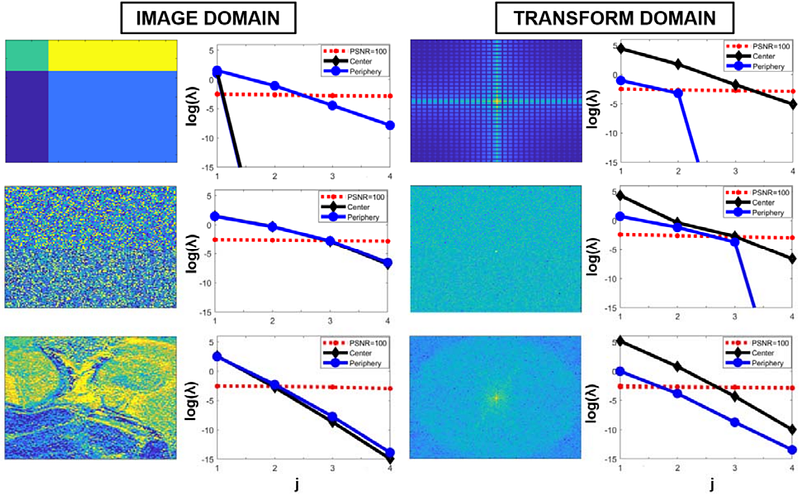Locally low-rank denoising in transform domains

Locally low-rank denoising in transform domains
Moeller, S.; Buko, E. O.; Pathan, S. P.; Dowdle, L.; Ugurbil, K.; Johnson, C.; Akcakaya, M.
AbstractPurpose: To develop an extension to locally low rank (LLR) denoising techniques based on transform domain processing that reduces the number of images required in the MR image series for high-quality denoising. Theory and Methods: LLR methods with random matrix theory-based thresholds are successfully used in the denoising of MR image series in a number of applications. The performance of these methods depend on how well the LLR assumption is satisfied, which deteriorates with few numbers of images, as is commonly encountered in quantitative MRI applications. We propose a transform-domain approach for denoising of MR image series to represent the underlying signal with higher fidelity when using a locally low rank approximation. The efficacy of the method is demonstrated for fully-sampled k-space, undersampled k-space, DICOM images, and complex-valued SENSE-1 images in quantitative MRI applications with as few as 4 images. Results: For both MSK and brain applications, the transform domain denoising preserves local subtle variability, whereas the quantitative maps based on image domain LLR methods tend to be locally more homogeneous. Conclusion: A transform domain extension to LLR denoising produces high quality images and is compatible with both raw k-space data and vendor reconstructed data. This allows for improved imaging and more accurate quantitative analyses and parameters obtained therefrom.


